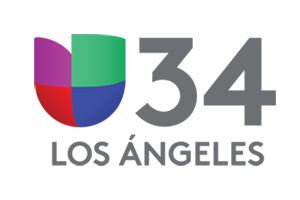
Los Angeles Special education Attorney
Frequently Asked Questions
-
How do I know if my child should be receiving special education services?You can have your school system perform an assessment by asking for one in writing. You need to include the areas of suspected disabilities (e.g. depression, ADD, ADHD, poor grades, excessive absences, and speech and language problems) and ask for an assessment. During the school year, the district has 15 days to present you with an assessment plan that includes all the assessments they are planning to administer to your child. Once you accept this plan by signing it, the district has 60 days to complete the assessments and present you with a report of their findings and recommendations. You should provide the district with any private assessments or diagnoses that you have because they are required to include them in their assessment report. Make sure you keep copies of everything you send the school district as well as everything they send you.
-
Are learning disabilities the only needs treated in special education?No, various Challenges faced by students, including mental health problems, that interfere with their education are also addressed by special education services. For example, students with autism, or who are physically disabled, bi-polar or schizophrenic are also covered by categories of eligibility. There is a long list of special education eligibility categories.
-
What types of special education services are available?The available services vary depending on the unique needs of your student. At the basic level, they can be special classes that address areas of special need such as reading, math, speech and language, pragmatics, occupational therapy, and many more. When more is needed, there may be special day classes that your student attends instead of regular classes. If required, they can attend special non-public schools or even residential treatment centers.
-
What is a Student Study Team (SST)Some school districts hold a Student Study Team Meeting (which may go by other names) to determine if a student should be assessed. Federal law and most state law do not have provisions for this. If you ask for an assessment in writing, they are required under the law to perform an assessment, even if the Student Study Team determines that one is not necessary.
-
What is an IEP (Individual Education Plan)?This is the key legal document that states all the services your student is to receive from the school district and other government agencies such as mental health. Federal law dictates who is to be present at an IEP Team Meeting where the decisions are made about your child’s future education. The Team not only determines what services the child is to receive, it also develops goals and objectives for your child. It is very important that the IEP be properly developed. Parents are required to be part of the IEP Team Meeting. If the parents disagree with the services and/or goals and objectives, they can sign the IEP “for attendance only” and have their concerns and disagreements included in the IEP notes. We advise you to consult with a qualified advocate prior to the IEP Team Meeting. Under the law, the districts and other providers are supposed to make available to you all assessment reports as well as proposed goals and objectives in advance of the IEP Team Meeting.
-
What can I do if I disagree with the results of the assessments done by the school district or other providers?You can note your objections on the IEP and you can ask for an IEE (Independent Education Evaluation). A mutually acceptable professional who is paid by the school district for their services should perform the IEE. If the school district refuses to fund an IEE, you can either go to Due Process or have private assessments performed. Often times you can get your medical insurance company to pay for part of the assessment costs. If you already have private assessments that you have provided the school district, they should agree to the IEE so long as your private assessment results differ from their results. When all else fails and the district refuses to perform an IEE, you must go to Due Process (see Due Process section of this website).
-
What is FAPE?FAPE stands for Free Appropriate Public Education. Under Federal law, each student is entitled to a FAPE, one that meets his or her unique needs. In Special Education, a FAPE may include special classes, schools, and even residential placement when needed.
-
What is IDEA?IDEA stands for Individuals with Disabilities Act which is the basic law for special education students.
-
What is a 504 Plan?Sometimes when school districts determine that a student does not qualify for special education services, it may recommend a 504 Plan that contains special accommodations such as preferential seating in class, assignments in writing as well as verbal, and extra time on tests.
-
Can mental health services be included in an IEP?Yes, when the student’s ability to access their education is impacted by their mental health problems, services such as therapy, medication management, day treatment centers, and even residential treatment services can be included in the FAPE offered in an IEP.
-
What if my child has hearing, vision, speech and language, or motor skills problems?These conditions may warrant IEPs or 504 Plans. The IEP should delineate the area(s) of eligibility as well as the services being offered to address the child’s challenges. Assessments should be done by the school district in all areas of suspected disabilities.
-
What is "Child Find"?Federal law mandates that school districts have in place a continuous system to seek out, locate, and identify students that may need special education services. Unfortunately, many districts only give lip service to Child Find requirements.
-
What happens when the school district tells me that they are no longer going to offer special education services to my child?Under the law the school district has to perform an assessment and report the results to an IEP Team Meeting before taking Special Education or 504 services away from a student. The same process applies when the district decides to switch a student’s services from special education to a 504 plan.
-
What do I do if my school district does not respond to my letter requesting a special education assessment?You can write them again and send a copy to the head of special education for your school district (call the district office to find out this person’s name and mailing address). You can also call this person or the principal of the school your child attends, but phone calls leave no permanent record for later use. If the district continues to ignore your request, you may have to consider filing for Due Process. Sometimes a letter from an education advocate can motivate the district.
Trusted Media Advisor
Different. Not Less.
Please reach out to our office so that Georgianna can assist you in the pursuit of securing a meaningful education for your child. We offer a 30-minute complimentary consultation for the analysis of your case.











